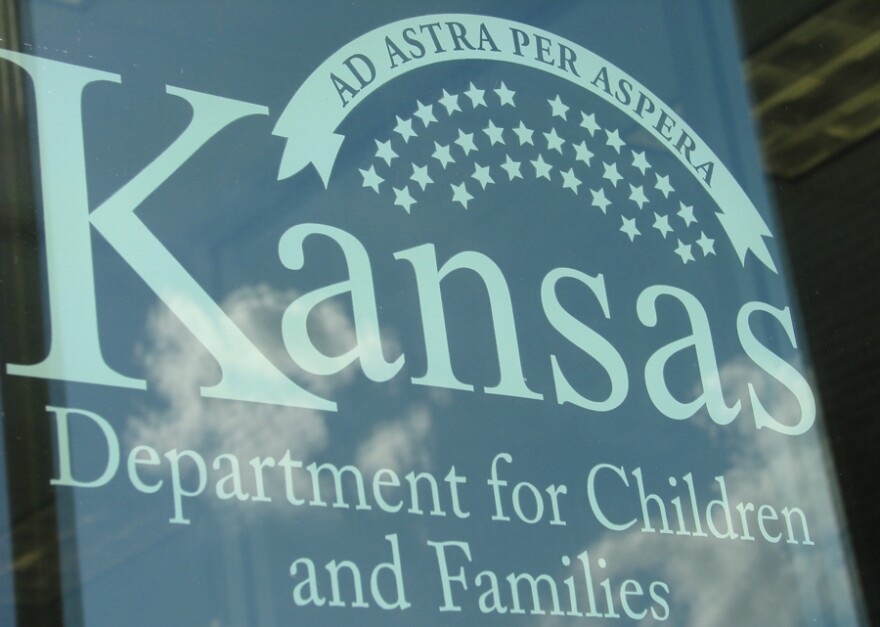A bill originally promoted as preventing lottery winners from claiming public assistance would now also cut off households that have received cash assistance for more than two years.
Sen. Laura Kelly, a Topeka Democrat, confirmed that the Senate Public Health and Welfare Committee had amended Senate Bill 372 to lower the lifetime Temporary Assistance for Needy Families (TANF) limit from 36 months to 24 months.
Theresa Freed, spokeswoman for the Kansas Department for Children and Families, said approximately 424 households would be affected if the 24-month limit is adopted this year. The bill has passed out of committee but has yet to be scheduled for a hearing before the full Senate.
The Hope, Opportunity and Prosperity for Everyone (HOPE) Act, passed in April 2015, lowered the lifetime limit from 48 months to 36 months. About 200 families that hit the new limit received their last check from the TANF program in January.
Federal law allows for up to 60 months of TANF payments, though states can fund additional time from their own money. In recent years, however, states have tended to move in the opposite direction, with Arizona instituting the lowest limit in the country in July, capping assistance at 12 months. Missouri has a 45-month limit.
In January, 5,370 Kansas households received cash assistance through TANF. Those households included 3,039 adults and 9,450 children. Removing the 424 families affected by the 24-month limit would reduce the caseload by about 8 percent.
The bill also would limit people who received a “TANF diversion payment,” a one-time case payment meant for an emergency, to 30 months of payments if they eventually did need to receive TANF. The current limit is 42 months. Diversions aren’t common, with cases numbering in the single digits in recent years. None would be affected at this point by shortening the time limit, Freed said.
Employment elements
The bill also requires food assistance recipients to accept a “suitable employment offer” and would forbid them from quitting a job where they were working at least 30 hours per week. The penalty for not complying is a three-month ban from food assistance for the first offense, a six-month ban for the second offense and a one-year ban for any subsequent offenses.
Joseph Mastrosimone, an associate professor of law at Washburn University who specializes in employment law, said banning a person from “voluntarily” quitting doesn’t mean the person could never leave a job, if the bill uses the same standard used in unemployment claims. For example, a person can’t receive unemployment if he or she leaves voluntarily, but there are exemptions, such as if that person is being sexually harassed in the workplace or if the company relocates, he said.
“I would think they wouldn’t be voluntary for the purposes of benefits,” he said.
Mastrosimone said the language likely wouldn’t run afoul of federal labor law. Most provisions have to do with preventing unjust firings rather than determining whether people can be prevented from quitting, he said.
“There’s no provision of federal law that says you can’t restrict somebody’s ability to quit their job,” he said.
Other requirements
The bill also states that any individual who doesn’t cooperate with a fraud investigation would be ineligible to receive TANF or child care subsidies until he or she cooperated. Currently, there are no penalties for not cooperating with fraud investigations, Freed said.
In addition, the bill would direct DCF to monitor benefit card requests for signs of fraud and authorize the state to collect any assistance that is improperly conveyed to another person. If a person requested a replacement card four times in a year, he or she would be notified the account was being monitored, and the department would investigate possible fraud if the person requested a fifth card. DCF and the contractor in charge of benefit cards already monitor replacements, Freed said.
Another provision would require DCF to verify the identity of all adults living in a household applying for benefits and to cross-check with the Kansas Lottery Commission to determine if any benefit recipients have won $10,000 or more, which could make a household ineligible for assistance. Current policy is to verify the identity of the applicant and only check on other adults in the household if they seem “questionable,” Freed said. The state currently doesn’t cross-check lottery winners.
The bill’s fiscal note hadn’t been updated to reflect the lower time limit for TANF. The Budget Office estimated the bill as it was originally written would cost the state general fund about $157,343 in fiscal year 2017.
Megan Hart is a reporter for KHI News Service in Topeka, a partner in the Heartland Health Monitor team. You can reach her on Twitter @meganhartMC






